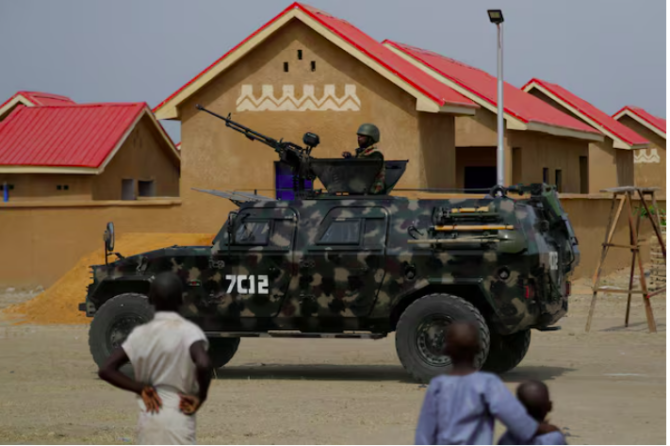Global Kidnapping Crisis: Nigeria’s Grim Reality and the Shadow of ISSP
Kidnapping has emerged as a pervasive global issue, with Africa bearing a disproportionate share of the burden. Nigeria, in particular, has become a focal point of this crisis, grappling with thousands of abductions annually. Meanwhile, the Islamic State Sahel Province (ISSP), a militant group active in the Sahel region, casts a shadow over Nigeria’s security landscape. We examine the global kidnapping trends, Nigeria’s alarming statistics, and the potential influence of ISSP, drawing on verified data and recent incidents.
The Global Kidnapping Landscape
According to the United Nations Office on Drugs and Crime (UNODC), Africa accounted for over 40% of global kidnappings in 2022, driven by a mix of criminal enterprises and extremist activities. The Global Initiative Against Transnational Organized Crime notes a 20% rise in abductions across the continent from 2020 to 2022. While Latin American countries like Mexico and Venezuela also report high kidnapping rates, Africa’s challenges are uniquely compounded by weak governance and regional instability.
Nigeria: A Kidnapping Epicenter
Nigeria consistently ranks among the world’s most affected nations for kidnappings. The Council on Foreign Relations reports a 400% increase in incidents between 2019 and 2023, with the Nigerian Police Force documenting over 3,000 abductions in 2022 alone. The crisis spans multiple regions:
- Northwest Nigeria: Criminal gangs, often operating in ungoverned spaces, were responsible for over 1,500 abductions in 2022, according to the Nigerian Security Tracker.
- Northeast Nigeria: Jihadist groups like Boko Haram and its splinter factions have conducted high-profile kidnappings, including the 2014 abduction of 276 schoolgirls in Chibok and the 2018 kidnapping of 110 schoolgirls in Dapchi, as documented by Amnesty International.
In 2021, over 1,000 students were abducted across northern Nigeria, underscoring the scale of the problem. By the first half of 2024, local authorities reported over 2,500 abductions, a 15% increase from the same period in 2023.

ISSP’s Presence and Regional Threat
The Islamic State Sahel Province (ISSP), an affiliate of the Islamic State, operates primarily in the Sahel region, including Mali, Niger, and Burkina Faso. A map of ISSP activities highlights its controlled zones in central Mali, western Niger, and eastern Burkina Faso, as well as contested areas marked by ongoing conflicts. While the map does not explicitly show ISSP-controlled zones within Nigeria, the query suggests a presence, possibly inferred from regional spillover or uncharted activities.
Recent incidents underscore ISSP’s reliance on kidnapping in West Africa:
- January 2023, Agadez, Niger: Unidentified assailants kidnapped an Austrian woman, with reports linking her captivity to ISSP in Mali.
- 14 January 2023, Asekrem, Algeria: Several assailants abducted a Spanish man near the Mali border, later rescued by Tuareg rebels.
- 18 January 2023, Burkina Faso-Niger Border: ISSP militants kidnapped four Moroccan drivers near Dori, releasing them unharmed two days later in Niamey, Niger.
- 1 February 2023, Agadem, Niger: Suspected ISSP militants abducted two Chinese oil workers near an oil field, killing two security guards.
These incidents, occurring in Nigeria’s neighboring countries, highlight ISSP’s operational reach and its use of kidnapping to fund extremist activities.
ISSP and Nigeria: A Looming Concern
While ISSP’s direct presence in Nigeria remains limited, its activities in the Sahel pose an indirect threat. Nigeria shares porous borders with Niger and other Sahel nations, facilitating the movement of arms, fighters, and tactics. The International Crisis Group notes that ISSP has historical ties to Boko Haram factions, raising concerns about potential collaboration. However, as of 2023, no specific ISSP-led kidnappings in Nigeria have been confirmed by reliable sources.
Dr. Malik Samuel, a researcher at the Institute for Security Studies, warns, “ISSP’s kidnapping campaigns in the Sahel could embolden Nigeria’s criminal and extremist networks, exploiting the country’s existing vulnerabilities.”
Nigeria’s Response and Regional Implications
Criminal gangs account for over 70% of Nigeria’s kidnappings, particularly in the northwest, while jihadist groups dominate in the northeast. The Nigerian government’s efforts, such as Operation Safe Corridor launched in 2023, have yet to stem the tide. The UN Secretary-General António Guterres cautioned in 2023, “The Sahel’s security challenges have far-reaching implications for West Africa, including Nigeria.”
Conclusion
Nigeria’s kidnapping crisis reflects a toxic blend of poverty, corruption, and insecurity, placing it at the forefront of a global scourge. While ISSP’s foothold remains stronger in the Sahel, its proximity and tactics amplify Nigeria’s risks. As abductions continue to rise, the interplay between local dynamics and regional threats like ISSP demands urgent attention.

















